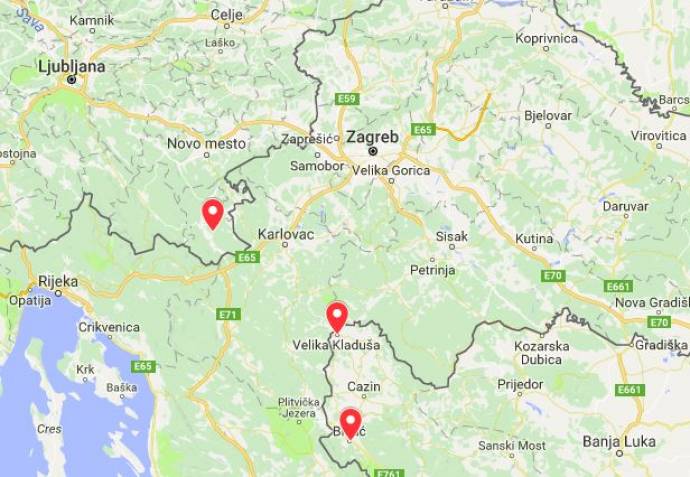The reports are based on the work by Amnesty International Slovenia and the Legal-Informational Centre for NGOs (Pravno-informacijski center, PIC), whose members visited last week the north-western Bosnian towns of Velika Kladuša and Bihać.
In the two towns, which are currently dealing with a huge influx of migrants who are trying to head further west, they collected testimonies from people whose requests for asylum in Slovenia were allegedly forcedly rejected by the police.
As Jerneja Turin of Amnesty told Dnevnik, they interviewed a total of 58 individuals who had told them that they had been in Slovenia in the past month. A majority of them did not travel alone, many with families.
According to Turin, 51 of the interviewees had told the NGO activists that they had told police officers in Slovenia or interpreters that they wanted to ask for asylum in the country
They said that, in spite of their intention to ask for asylum, they were forcedly handed over to the Croatian police, which in turn deported them back to Bosnia-Herzegovina.
While Dnevnik noted that such practice is strictly forbidden under international law, it added that the police and the Ministry of the Interior have denied these reports.
According to the paper, the report by Amnesty is in line with the testimonies of migrants in Velika Kladuša and Bihać taken by reporters of Dnevnik and public broadcaster RTV Slovenija.
The regional office of the UN High Commissioner for Refugees (UNHCR) for Central Europe, which covers Slovenia, told Dnevnik that it was aware of cases of people who claimed that they had been denied entry into Slovenia and requests for asylum.
The UNHCR said it was investigating the matter, as is the Slovenian Office of the Human Rights Ombudsman, which said that its representatives had already visited the police stations in Črnomelj and Metlika in the south-east.
The Maribor-based newspaper Večer, which also reported today on the same issue, meanwhile said that Amnesty had called on outgoing Prime Minister Miro Cerar to launch an independent investigation of the conduct of the police.







